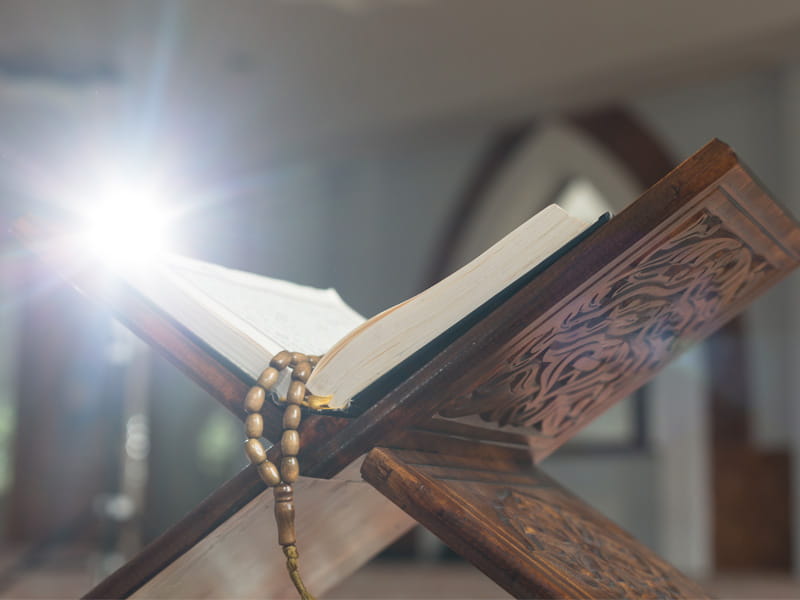The word 'Islam' literally means 'submission'. The central message of the prophet Muhammad ("peace be upon him"--a phrase that we add as a mark of respect) was the need for all people to submit to the will of God.
Muhammad was born in 570 CE in Mecca, which is modern day Saudi Arabia. God granted him a set of revelations that have been written down in the Qur'an. The Qur'an, which is written in Arabic, has 114 sura (chapters) that are arranged in order of length, with the exception of the opening sura.
The main theme is that the message of monotheism (the affirmation that there is only one God--which in Arabic is translated 'Allah') has been given to many prophets in the history of humankind (including the Jewish prophets and Jesus of Nazareth), but the message was distorted. Jews and Christians are highly regarded in Islam and described as the 'People of the Book'; there is an obligation in the Qur'an to respect Jewish and Christian religious practice. The Qur'an is God's final clarification and appeal for worship and obedience from all people. It provides a vision for the right ordering of society and considerable practical guidance. The Qur'an explains how human activity is under the control of God and, ultimately, God will judge all people.
Along with the central appeal to the oneness of God, Muhammad exhorted his followers to observe the five pillars of Islam. These are:
To become a Muslim one must recite the Shahada, which reads: "There is no God but Allah and Muhammad is his Prophet." This is the basic profession of faith; it stresses the oneness of God and that Muhammad is a messenger of God. "
Salat is the obligation to pray at least five times a day: dawn, mid-day, late afternoon, sunset, and late evening. The discipline helps to ensure that we become authentically God-conscious in our everyday life.
Sawm is required once a year during the month of Ramadan; it is a period of self-restraint--one must not drink or eat during daylight hours. This reminds us of our privilege of eating and drinking and provides an opportunity to grow in spiritual depth and understanding.
Hajj is the obligation at least once in a lifetime to visit Mecca, which is the holiest city in Islam.
Zakat is the expectation that all Muslims will give to support the Muslim community. There is no way one can just be merely a 'spiritual' Muslim: it is a religious obligation to help one's neighbor. (More on the Five Pillars)
Islam is a remarkable religion: from simple beginnings, it is now a world-wide faith. There is a delightful simplicity and clarity about its beliefs and practices. For those who want to know more about the fundamental beliefs, click here. Alternatively, for a good solid introduction look at Muslims: Their Religious Beliefs and Practices by Andrew Rippin. Return to the "class room"

